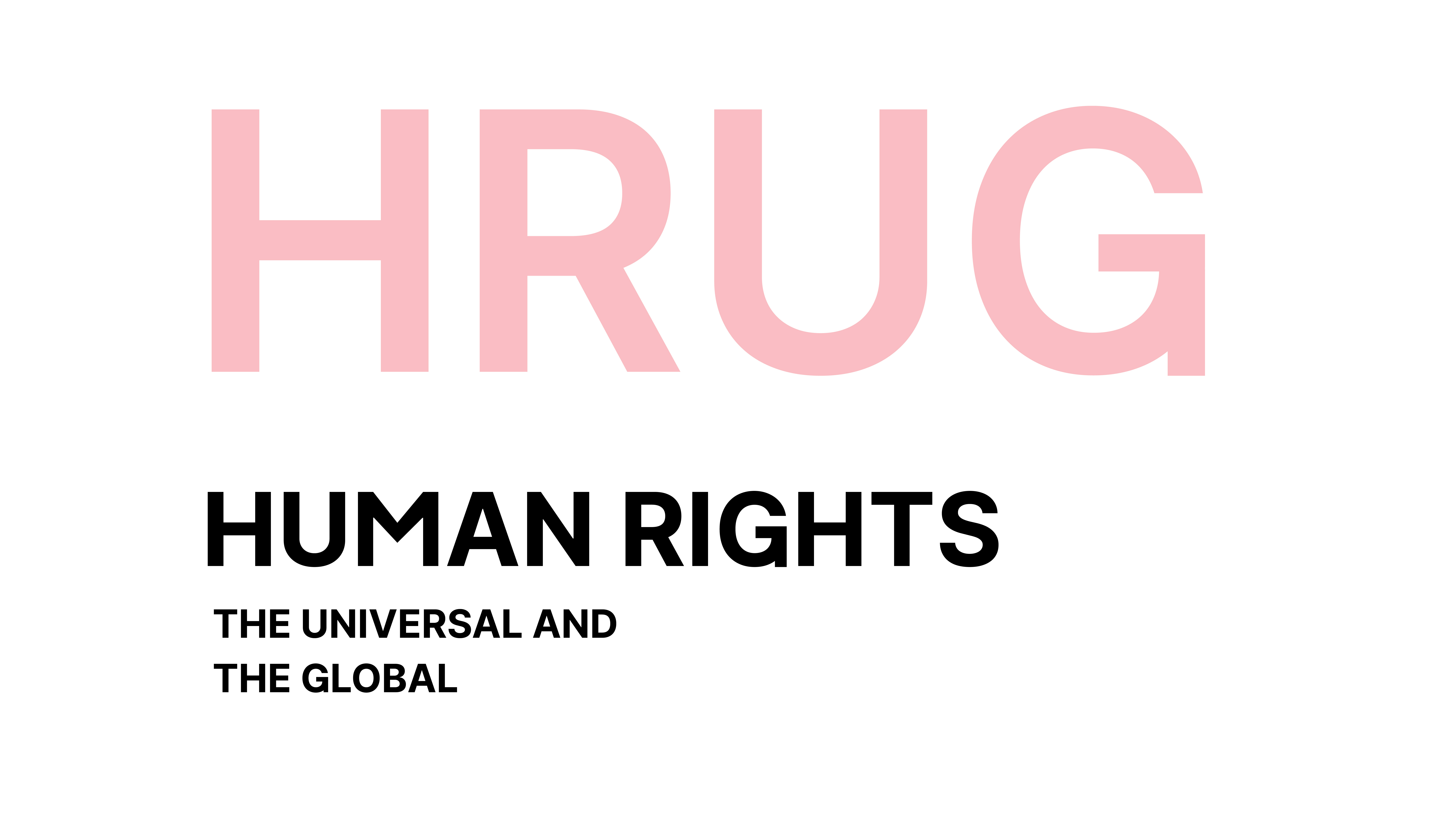On January 30, 2024, the HRUG regular seminar on “Interaction between Law and Politics in a Global Perspective: Law First or Politics First” was successfully held. The seminar was chaired by Professor Peter Herrmann, a researcher of Central South University Human Rights Center. Evgeniia Kiseleva (a researcher of the School of Economics at the Russian National Research University Higher School of Economics), Joe Finnerty (a social policy analyst, School of Applied Social Studies, University College Cork, Republic of Ireland), Mehmet Okyayuz (a professor of political science at Middle East Technical University, Turkey), Fan Jizeng (an associate professor of the Law School of Shandong Technology and Business University), Li Juan (a researcher of CSU Human Rights Center), and Theophilus Edwin Coleman (a postdoctoral researcher of University of Johannesburg in South Africa) participated in the discussion. This seminar mainly explored the current practice of the interrelationship between law and politics in the respective countries of the participants who further put forward corresponding opinions on the position of “law first” or “politics first”.
Professor Peter Herrmann pointed out that the Constitutional Court is increasingly becoming a tool for questioning the legitimacy of political movements and parties. He criticized the lack of clarity in the definition and functions of the Constitutional Court. The researcher Evgeniia Kiseleva pointed out that in Russia, law is not always the top priority, but is seen as a tool that can be used for political and cultural purposes. She mentioned that the Russian Federal Constitution has been amended for certain political purposes. In addition, culture and personal relationships are often more valued than strict adherence to the law in Russian society.
Subsequently, Associate Professor Li Juan pointed out that Chinese courts lack the power of constitutional judicial review and the establishment of institutions similar to constitutional courts. She mentioned that the current judicial system in China plays a role as a decision-making body. The Supreme People’s Court improves or even revises relevant laws by formulating judicial interpretations and issuing guiding cases. Although this approach was initially not explicitly authorized, it has now been accepted and the Supreme People’s Court is given a quasi legislative function in essence, which reflects a new mode of interaction between law and politics.
Joe Finnerty argued that Ireland also lacks an institution similar to the Constitutional Court, but the Supreme Court has the power to review proposed legislation for constitutionality. He discussed the conservative interpretation of the constitutional provision protecting private property and its impact on Irish housing policy by introducing housing issues. Professor Peter Herrmann asked whether Ireland, like Germany, has the situation of submitting some decisions to the court to avoid political decision-making, especially political change. Joe Finnerty responded that the President has the right to refuse to sign proposals approved by Congress, but can submit them to the Supreme Court for review of their constitutionality, without the authority to change their content.
Professor Mehmet Okyayuz believed that legal scholars often focus too much on the existence of law and overlook the influence of social context. At the societal level, law always has a political nature and masks social dynamics and processes. He thought that in Germany, laws and legal institutions are only an abstract framework and there is skepticism about their actual effectiveness. Professor Peter Herrmann approved the importance of considering social factors in legal interpretation, but he didn’t agree with the view that law essentially does nothing and pointed out that law and its practitioners play a significant role in protecting people’s interests. Professor Mehmet Okyayuz cited the reform of the asylum legal system in Europe as an example and then insisted that the failure of laws and practitioners to take effective action in the face of social issues reflects the passivity of the law.
Associate Professor Fan Jizeng believed that the boundary between law and politics is often difficult to distinguish. He pointed out that the focus of the discussion should be on the essence of law and how judges and legal practitioners follow written laws. He believed that law is complex, as it can be formulated by legislators, evolved and interpreted by the Constitutional Court, and may even provide a way to resolve conflicts between courts and legislative bodies through dialogue.
Professor Mehmet Okyayuz maintained that there are two ways in which law interacts with society: one is through decisions made by the upper class to influence the society; the other is that the law adapts to social trends. He asked, should the law provide standards for regulating behavior, or should it respond to social changes and make corresponding adjustments? Associate Professor Fan Jizeng responded that different ideologies have different interpretations of law, and law alone cannot solve all problems. Law sometimes cannot adapt to the speed of social change, and its challenge lies in determining the legitimacy of the law, involving both social legitimacy and normative legitimacy. He considered that the most appropriate method to determine which aspect is more priority is through democratic decision-making by the People’s Congress. Another method is through court rulings and timely observation of public reactions. But each method has its inherent problems that need to be considered.
At the end of the seminar, the researcher Evgeniia Kiseleva emphasized the importance of transparency in the formulation and interpretation of standards. Associate Professor Li Juan added that in China’s practice, courts not only undertake the function of adjudication, but also have quasi legislative functions. She believed that this may be to fill the gap in China’s lack of a constitutional court and a constitutional review mechanism, thus assuming the role of judicial review in practice.
2024年1月30日,HRUG定期研讨会之“全球视角下的法律与政治互动:法律优先抑或政治优先?”主题会议顺利召开。本次会议由中南大学人权研究中心研究员Peter Herrmann教授主持,俄罗斯国立高等经济大学经济学院研究员Evgeniia Kiseleva、爱尔兰国立科克大学应用社会研究学院政策分析家Joe Finnerty、土耳其中东科技大学政治学Mehmet Okyayuz教授、山东工商学院法学院范继增副教授、中南大学人权研究中心研究员黎娟副教授以及南非约翰内斯堡大学博士后研究员Theophilus Edwin Coleman参加讨论。本次讨论主要探讨了与会者各自国家中法律与政治的相互关系的实践现状,并对“法律优先”抑或“政治优先”的立场提出相应意见。
Peter Herrmann教授指出,宪法法院日益成为质疑政治运动和政党合法性的工具。他对宪法法院的定义和职能缺乏明确性提出了批评。Evgeniia Kiseleva研究员指出,在俄罗斯,法律并非总是最优先考虑的事项,而是被视为一种可用于政治和文化目的的工具。她提到,《俄罗斯联邦宪法》曾出于某些政治目的而进行过修改。此外,在俄罗斯社会中,文化和个人关系往往比严格遵守法律更受重视。
随后,黎娟副教授指出,中国法院缺乏宪法司法审查权和类似宪法法院的机构设置。她提到,当前中国的司法机关发挥着决策机构的作用。最高人民法院通过制定司法解释和发布指导性案例,完善甚至修订相关法律。尽管这种做法最初未获得明确授权,但现已被接受,从而使其实质上具有准立法的职能,这体现了法律和政治之间的新型互动模式。
Joe Finnerty指出,爱尔兰同样缺乏类似宪法法院的机构设置,但最高法院有权审查拟议立法是否合宪。他通过引入住房问题,讨论了对宪法保护私有财产条款的保守解释及其对爱尔兰住房政策的影响。Peter Herrmann教授提问道,爱尔兰是否与德国一样存在将一些决定提交给法院以避免政治决策,特别是政治变革的情况?Joe Finnerty回应道,总统有权拒绝签署议会批准后的提案,但可将其提交给最高法院审查其合宪性,但无权改变其内容。
Mehmet Okyayuz教授指出,法学学者通常过于关注法律的存在而忽视了社会背景的影响。在社会层面上,法律总是具有政治性,往往掩盖了社会动态和过程。他认为,在德国,法律和法律机构仅为一个抽象的框架,对其实际效力持有怀疑态度。Peter Herrmann教授赞同法律解释中考虑社会因素的重要性,但他不认同法律实质上无所作为的观点,并指出法律及其从业者在保护人们利益方面发挥了显著作用。Mehmet Okyayuz教授以欧洲有关庇护的法律制度改革为例,指出法律及从业者在面对社会问题时未能采取有效行动,体现了法律的被动性。
范继增副教授认为,法律和政治的界限时常难以区分。他指出,讨论的焦点应是法律的本质以及法官和法律从业者如何遵循成文法。他认为法律具有复杂性,它可以由立法者制定,可以由宪法法院进行演化解释,甚至可能通过对话为解决法院与立法机关之间冲突提供途径。
Mehmet Okyayuz教授认为,法律与社会的互动存在两种方式:一是通过上层所作决策对社会产生影响;二是法律适应社会趋势。他提问道,法律是应当为规范行为提供标准,还是对社会变化做出反应并进行相应调整?范继增副教授回应道,不同的意识形态对法律有不同的解释,法律并不能单独解决所有问题。法律有时无法适应社会变革的速度,其挑战在于确定法律的合法性,涉及社会合法性和规范合法性两个方面。他认为,在确定哪一方面更为优先时,最合适的方法为人民代表大会的民主决策,另一种方法为通过法院作出裁判并及时观察社会公众的反应。但每种方法均存在其固有问题需要考量。
会议最后,Evgeniia Kiseleva研究员强调了在制定和解释规范时透明度的重要性。黎娟副教授补充总结,在中国的实践中,法院不仅承担裁判职能,还兼具准立法职能。她认为,这可能是为弥补中国缺乏宪法法院及合宪性审查机制的空缺,从而在实践中承担起司法审查的作用。
